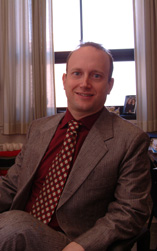
Prof. Simon holds a Ph.D. in anthropology from McGill University, and began his career working in the anthropology of development. His previous publications include Tanners of Taiwan: Life Strategies and National Cultures (2005) and Sweet and Sour: Life-Worlds of Taipei Women Entrepreneurs (2003). Since 2004, he has worked extensively on ethnographic research with Truku and Sediq groups in both Hualien and Nantou counties, which formed the basis for his most recent book, published in French: Sadyaq Balae!: L'Autochtonie Formosane dans Tout Ses États (2012). Today, he is one of the most prominent scholars writing on the Taiwanese state's relations with indigenous "aborigines" (原住民), who by official counts make up about two percent of the island's population.
Taiwan’s indigenous social movement, active since the 1980s, has successfully lobbied to get indigenous rights included in the Republic of China Constitution, to create a cabinet level Council of Indigenous Peoples, and to pass the 2005 Basic Law on Indigenous Peoples. Taiwan’s indigenous social activists have also become regular participants in United Nations indigenous events. Especially during the Chen Shui-bian presidency, foreign observers often suspected that the state instrumentalized “indigeneity” to claim a distinct identity from China. Events since 2008, however, demonstrate that the indigenous rights movement has maintained its own momentum and that the indigenous peoples have interests that cannot be reduced to issues of national identity or party politics. In fact, the indigenous people overwhelmingly support the KMT, and indigenous movements are involved in both “pro-unification” and “pro-independence” political networks. Most indigenous social movement leaders, as well as ordinary indigenous people, hope that their movement can make progress in indigenous rights in ways that transcend the “blue” and “green” division between Han Taiwanese. This talk will explore the diversity of the indigenous movements, their mobilization strategies, and values since Ma Ying-jeou was elected President of the ROC in 2008.
 RSS Feed
RSS Feed
